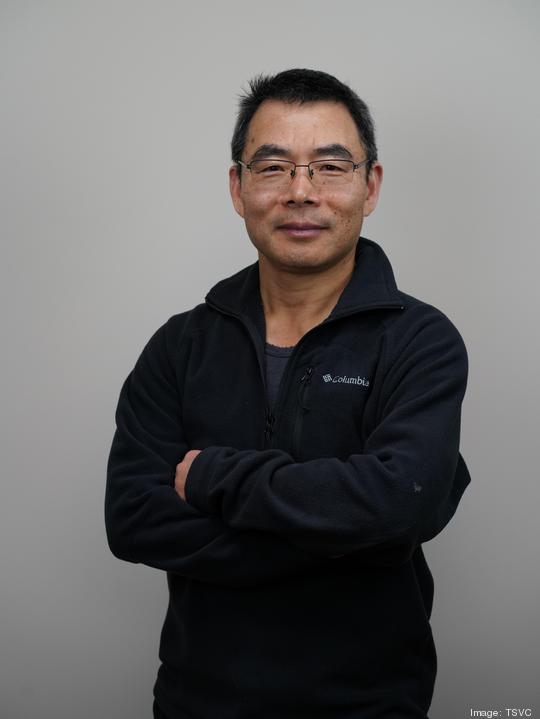
Silicon Valley is obsessed with unicorns, but billion dollar valuations seem to be popping up every day. So, in this environment where sky-high valuations are around every corner, is unicorn status even relevant anymore? At least one venture capital firm thinks there's something better: a dragon.
The term dragon has been around for a few years but isn't well-defined. The Los Altos-based firm TSVC is looking for companies that can build a great product and generate at least a billion dollars in hard revenue. Valuations still matter, but other metrics are equally important. I spoke with two of TSVC's partners, Eugene Zhang and Spencer Greene, about early-stage investing, their winning bet on Zoom, and, of course, unicorns versus dragons.

What is TSVC’s investing philosophy?
Eugene: There are all kinds of investors… late stage, early stage. We will stay at the seed stage, basically to be the first institution to write a check. But also, most of the senior partners have entrepreneur experiences, so that also helps us stay with that seed stage. And then also are very experienced with technical backgrounds. So this is different from typical Wall Street people. So that's our unique profile.
How do you define a dragon at TSVC?
Spencer: We probably have a different definition from the ones that you've heard. I think the most common definition that I've seen is also a market cap definition. Where a unicorn is a billion dollar valuation, folks are talking about a bigger number and saying, oh, you know, if it's even bigger than that, pick a number. $12 billion. But the market cap is not really the right measure. Market stock valuation can fluctuate wildly. There's speculation, there's all kinds of things that can be irrational in the market at a given moment in time. What's more important is customers, revenue, right? And people that are using things. So the strongest type of dragon, we think, is one that has a billion dollars in revenue. If it starts from nothing and can grow. Zoom is $4 billion revenue. So there's a very powerful company that 10, 11 years ago didn't exist. That's the highest class of dragon. One that is selling enough products to enough customers that they've actually cleared a billion on the revenue line.
There’s been a decoupling of valuation and revenue, right?
Spencer: It’ll come back together.
Eugene, you wrote a blog post in January about all this stuff: over-valuations and the idea of revenue being really important. And that the final exit value matters, right? But there's been so much focus for years on just huge valuations, and we're finally seeing that unravel a little bit and correct.
Eugene: Clearly a unicorn was very rare, say, five years ago. Then in the last few years, every year you created hundreds of new ones. In hindsight, we know a lot of them were crazy high valuations. Maybe in the future, we also have talk about profitability. So, that was enabled by lower interest rates. Maybe in the next year or two people want to move away from the unicorn. Valuation still matters, it's a part of the economic evaluation, profit and then growth and revenue. If you have hyper growth, hyper margins, then a high valuation. It's all very normal and should be the way it is. Today, we are at a kind of inflection point. We are at a transition period from an old cycle to a new one. In two to three years, who can rise up from the crash? Those will be the companies with residual value. Other companies, people will forget about them.
It sounds like unicorns are going to be irrelevant. And if everybody's a unicorn, what does that mean?
Eugene: Yeah, and there’s so much dilution.
The startup Fast recently folded. Do you think that was a symptom of this period of hyper valuation and low interest rates, and nobody really paying attention to revenue?
Spencer: In a way, but there's more to it than that. There's an explicit strategy that a number of late-stage funds have adopted which is which we call over capitalization. There have been some investors who have said, ‘we're going to put so much capital into a company, that that's going to be the strategic weapon.’ Whether they're doing that because of interest rates or because of other reasons, they certainly have access to capital. It began with SoftBank. So many late-stage mega funds are copying that strategy now and saying, you know, a company will be successful just because they have a huge balance sheet. But when you look at that company and see the amount of hiring they did, the amount of scaling they tried to do, and the small revenue they had… what was missing there was they didn't have enough evidence to say that they were scaling something that people wanted.
Eugene: When the company you invest in is $1 billion and in six months it becomes $3 billion or $5 billion in one year. Now the frenzy starts. This late-stage VC became the most profitable among all investments. For example, Tiger Global Management. Look at how they deploy. I don't call them bad or good, it’s just the transactional mind. It's not like a VC going with the startup very long term. And the typical founder and some VCs have this long term relationship kind of mindset, versus a typical transactional mindset doing hedge funds.
Things seem to be shifting a bit because now later-stage investment firms are realizing that early stage is a really good place to be, right?
Eugene: Absolutely right. Maybe you stay in the hedge fund space, not doing the late-stage, because it’s so competitive. Now, a lot of investors say, this is late-state, but in a way you still can invest $10 million or $20 million, although that's not an accomplishment but it's been a pattern for the last few years, more and more money moving in a quarter upstream. Another example was Tiger Global putting money into AngelList. The execution is multi-feed.
Spencer: And many of these mega funds, they've been working to get into early-stage really to support their late-stage business. They fear that in these late-stage rounds, they'll be squeezed out. So they say, ‘Oh, if I'm involved in an early-stage deal, then I'll have access to the later-stage deal.’ Now with late-stage softening, that strategic imperative is less. When everything was hot, then access was real currency. As things cool off, people will talk about, ‘here's a round that's not filled, and we're scrambling to find people to fill it.’
TSVC made a very early bet on Zoom, in an emerging space: video conferencing. What did the firm see back in 2011 that made you say, this is going to be a good bet?
Eugene: For us to make an investment, we use our three pillars. Number one is the team founder, and number two is the market potential. Eric (Yuan) really struck us as very strong, rising from the ranks. He was not like us, the Tsinghua alumni from the elite school. Eric, his school, nobody knows. But he rose through the ranks and all that shows he’s the real thing. And then from my recollection, the passion and dedication. And he showed leadership. So, all that was very convincing. The market actually was quite debatable at that time. WebEx was part of Cisco, and you had Skype at that time still. There was a lot of competition at that point. But finally our belief in the team and also the mobile space, which was not totally taken over.
Spencer: There's another bit that not a lot of people know about the early Zoom story, which is that they invested very heavily in some core technology. It really was a deep tech company. And we sort of take video communication over the internet for granted, but certainly in 2011, they had to develop their own code because they found that that the core technology wasn't good enough. And the slight differences in video quality and audio quality made an enormous difference in user experience. There was a deep tech angle that I think people don't really appreciate about the history of Zoom.People thought that Skype was either good enough or the best that could be done. What Eric knew was that it wasn't good enough, and that he could do better.
Eugene: The app has to work on mobile or under any condition. So that means the video call has to be better than another app, even if it has worse bandwidth. I personally, in the early days, tested it on United, the Wi Fi on an international flight. WeChat today is a lot better, but during those days, you switched to WeChat and you couldn’t hear things because the bandwidth was so limited. I switched to Zoom, and it just worked.
People like to invest in people that look like themselves. Do you think other investors lost out on Zoom because they didn’t see themselves in Eric? Are investors missing out on amazing companies and founders because they're not open to investigating their own biases?
Eugene: After the B round, things change. The results start to speak. The CEO is proven. But in early-stage, Eric had very weak signals. A private school in China? No school in the US to speak of? Why he didn't get any degree here? So then, of course, the major Silicon Valley VC talked to him and nobody felt a fit there in the early-stage. Including the A round, it was all noes.
Spencer: For TSVC, all the companies we invest in are US companies, but about 30% of them are Chinese born founders and it represents about 40% of our returns. So it's been a great segment that is undervalued by others.
Has TSVC been in the position of negotiating any down rounds recently?
Eugene: Definitely, yes. Not a whole lot. That's the toughest time for investors. You still believe in the founder on one side. You want to avoid putting good money after bad money. Sometimes a founder just needs this bridge. That's actually a very time-consuming effort. But, yes. Sometimes there’s pay-to-play, and then early investors have much less favorable terms than the new money.
Spencer: You know, we were both here working in Silicon Valley during the dotcom era. We've seen cycles before.
And what are the dragons in your portfolio?
Spencer: By our revenue definition, Zoom is the one that has cleared a billion in revenue at this moment, and the rest, we think, are on their way.
The Deets
Age: 59
Residence: Los Altos
Hobbies: Golf
Reading: anything about the market, investment and economy cycles
Watching: WeCrashed
Education: Tsinghua University in China and Syracuse University
First investment: 17ZuoYe
What are you most proud of? Being resilient.
Age: 55
Residence: Palo Alto
Hobbies: I stopped having hobbies when my kids were born. They’re just getting to the age where I can start thinking about restarting.
Reading: Noise: A Flaw in Human Judgment
Watching: Lupin
Education: Rice University and Stanford
First investment: Myself in 1996 and paying my own salary for two years while starting a company
What are you most proud of? My two teenagers. They’re so much more mature and clued-in than I was at their age.








